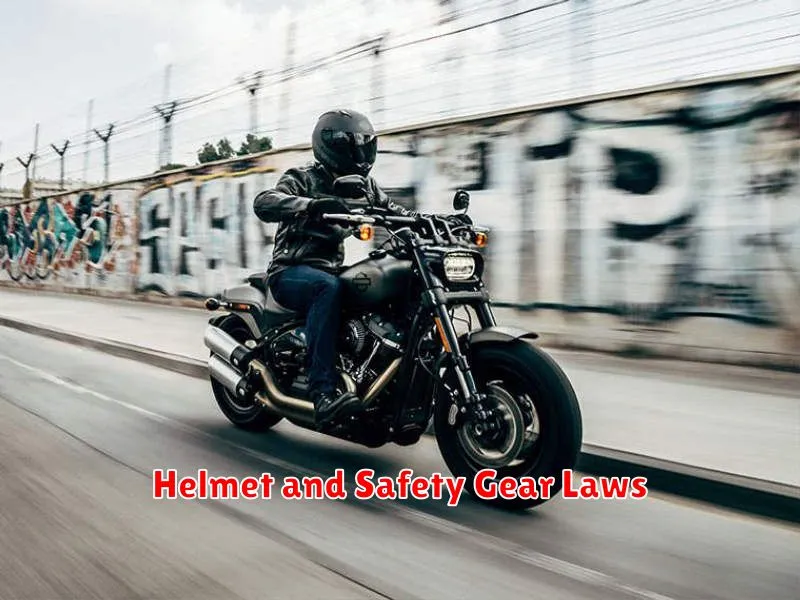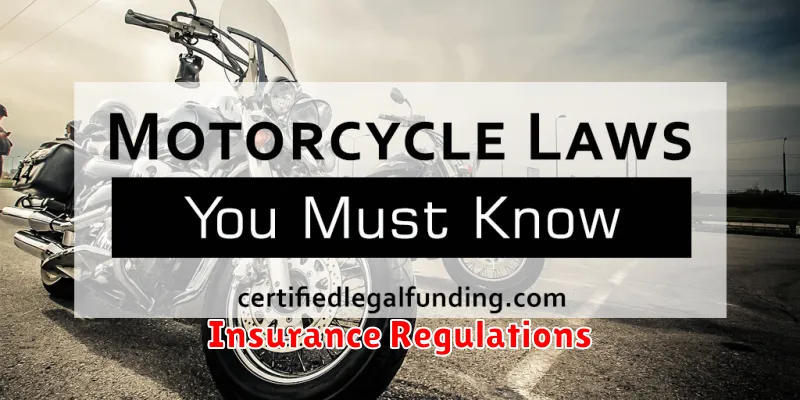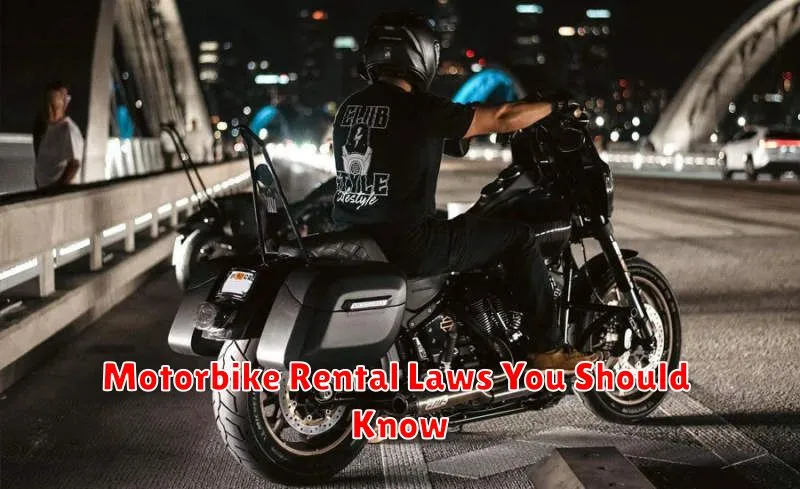Planning an exciting motorbike adventure? Before you hit the open road, it’s crucial to understand the motorbike rental laws that govern your destination. Knowing the rules and regulations surrounding motorbike rentals can save you from potential legal trouble and ensure a smooth and enjoyable riding experience. This article will provide you with essential information regarding motorbike rental laws, covering everything from licensing requirements and insurance to safety regulations and potential liabilities. Whether you’re a seasoned rider or a first-time motorbike renter, familiarizing yourself with these laws is a vital first step in your journey.
From international travel to domestic road trips, motorbike rentals offer an exhilarating way to explore new landscapes. However, motorbike rental laws can vary significantly depending on the location. Understanding the specific requirements for motorbike rentals in your chosen destination will help you avoid unexpected complications and penalties. This article will delve into key aspects of motorbike rental laws, providing valuable insights to help you navigate the legal landscape and embark on your motorbike adventure with confidence.
Basic Licensing Requirements
Before you hit the road on a rented motorbike, understanding licensing requirements is crucial. Generally, you’ll need a valid motorcycle license endorsed for the specific class of motorbike you intend to rent. This endorsement often involves a separate test and demonstrates your competency to handle larger or more powerful machines.
A standard driver’s license might permit operation of smaller, lower-powered motorbikes in some jurisdictions. However, it’s essential to verify this with the rental agency and local authorities beforehand. Renting and riding a motorbike without the correct license can result in fines, penalties, and potential legal issues.
International Driving Permits (IDP) are often accepted alongside your native motorcycle license, especially if it’s not in the local language. Always confirm IDP acceptance with the rental agency. Remember, an IDP is not a standalone license and must be accompanied by your valid motorcycle license from your home country.
Certain rental agencies may have their own specific requirements, such as a minimum age or riding experience. Always check with the specific rental agency for their full licensing and documentation requirements before booking your rental.
Age Restrictions by Country
Minimum age requirements for motorbike rentals vary significantly between countries. It is crucial to research the specific laws of your destination before booking. Failure to comply can result in fines or invalidate your rental agreement.
Some countries have a simple minimum age, often 18 or 21. Others have tiered systems based on engine size. For example, you might be able to rent a smaller scooter at 16, but need to be 21 to rent a more powerful motorbike. A valid motorcycle license from your home country is generally required, and some countries may also require an international driving permit (IDP).
Below are a few examples, though this is not exhaustive and you should always verify with local authorities:
| Country | Minimum Age | Notes |
|---|---|---|
| Example Country A | 18 | May require IDP |
| Example Country B | 21 | For engines over 125cc |
| Example Country C | 16 | For engines under 50cc |
Helmet and Safety Gear Laws

Helmet laws vary significantly by jurisdiction. Some areas mandate helmet use for all riders, while others may only require them for younger riders or those operating certain types of motorcycles. Ignoring these laws can result in fines and penalties.
Beyond helmets, some locations have laws regarding other safety gear. This might include requirements for eye protection such as goggles or face shields. Certain jurisdictions may also mandate protective clothing like jackets and gloves, particularly for riders engaged in motorcycle instruction or testing.
Before renting a motorcycle, research the specific helmet and safety gear laws of the area where you’ll be riding. Rental agencies can often provide this information, but confirming it with local authorities is always recommended to ensure compliance and prioritize your safety.
Speed Limits for Two-Wheelers
Understanding and adhering to speed limits is crucial for safe motorcycle operation. Speed limits for two-wheelers often differ from those for cars and other vehicles, and ignoring these limits can lead to severe penalties, including fines and license suspension.
Always check posted speed limit signs. These signs dictate the maximum legal speed for the specific road or area. In the absence of posted signs, default speed limits apply. These default limits can vary based on the type of road and surrounding environment (e.g., residential areas, school zones). Familiarize yourself with these local regulations before operating a motorcycle.
Furthermore, conditions may require adjusting your speed below the posted limit. Adverse weather, such as rain, fog, or snow, significantly reduces visibility and traction, demanding slower speeds for safe handling. Heavy traffic also necessitates lower speeds to maintain a safe following distance and react effectively to changing traffic patterns.
Insurance Regulations

Understanding insurance requirements is crucial when renting a motorbike. Regulations vary by jurisdiction, so always confirm the specific requirements of your rental location. Generally, motorbike rentals include some level of basic insurance coverage.
This basic coverage typically includes third-party liability insurance, which protects you financially if you cause injury or damage to another person or their property. However, it’s important to note that this basic coverage may have limitations regarding the amount of damages covered.
You should carefully review the included insurance policy and consider supplemental insurance options. These options might include Collision Damage Waiver (CDW) to protect against damage to the rental motorbike, and Supplemental Liability Insurance (SLI) to increase your liability coverage. Theft protection is another option to consider.
Before renting, check with your personal insurance provider. Your existing policy may extend to cover rental motorbikes. This can offer a cost-effective alternative to purchasing supplemental insurance through the rental agency.
Where You Can and Can’t Park
Understanding parking regulations is crucial for responsible motorbike operation. Parking legally ensures safety and avoids penalties. Generally, motorcycles can park in designated motorcycle parking areas or regular car spaces unless otherwise specified.
Prohibited parking zones typically include:
- Sidewalks
- Crosswalks
- Bus stops
- Loading zones
- No parking zones
- Areas blocking fire hydrants or driveways
Always check for signage indicating restricted parking hours or permit requirements. Some areas offer free motorcycle parking while others may require payment. Illegally parked motorcycles risk being ticketed or towed.
Dealing with Traffic Violations
Traffic violations are unfortunately a possibility while renting a motorbike. Understanding the proper procedures is crucial to avoid further complications.
If you are stopped by law enforcement for a violation, remain calm and polite. Present your required documentation, including your driver’s license, rental agreement, and insurance information. It is important to understand the violation you are accused of committing. If there is a language barrier, request clarification or translation assistance if available. Do not attempt to bribe or argue with the officer.
Pay any fines according to the established procedures. Retain all documentation related to the violation, including receipts for any payments made. Notify the rental company about the incident as soon as possible. Failure to report the violation could lead to additional penalties from the rental agency.

